Many Nigerians aspire to travel abroad either for business or leisure purposes. However, before embarking on any international journey, they need to apply for a visa.
The visa application process can be a daunting task, especially when it comes to making payment for the application.
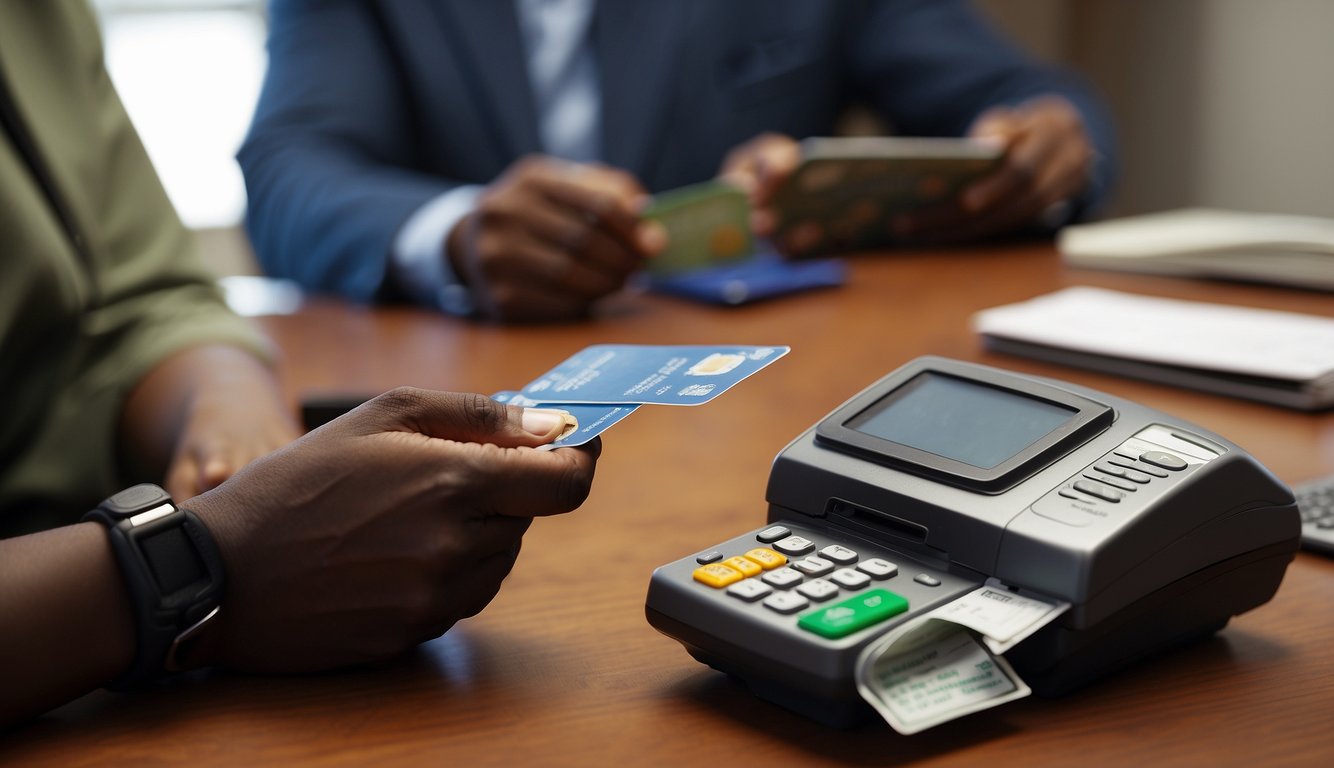
To make a payment for a visa application in Nigeria, one needs to follow a few steps. The Nigeria Immigration Service (NIS) is responsible for the issuance of visas in Nigeria.
Applicants must first visit the NIS website and select the appropriate visa category. Once they have completed the application form, they will be required to make payment for the visa application.
There are several payment options available to visa applicants in Nigeria. These include online payment, bank payment, and payment at designated collection centers. Each payment option has its unique requirements and procedures. Therefore, it is essential to understand the payment process before making any payment.
This article will provide a step-by-step guide on how to make payment for a visa application in Nigeria.
Table of contents
Nigerian Visa System
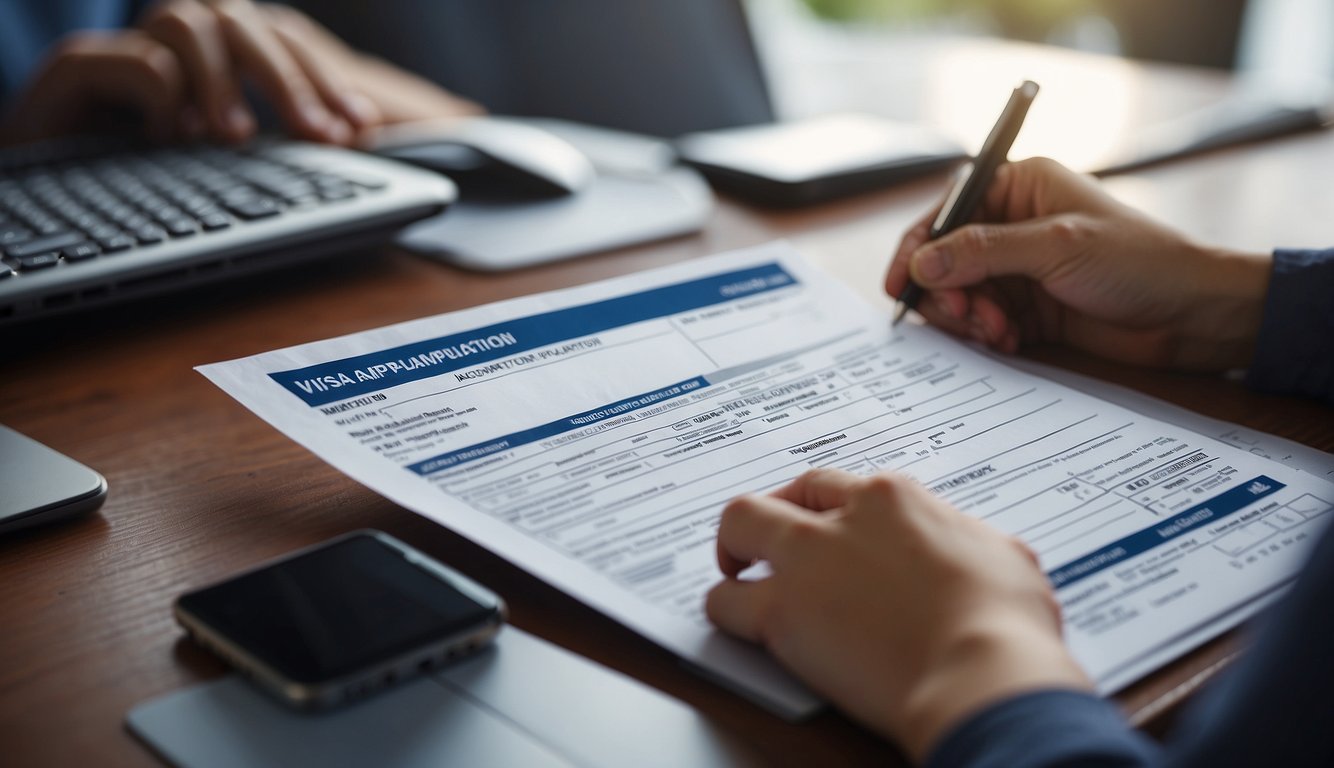
Nigeria has a well-structured visa system that regulates the entry and stay of foreign nationals in the country.
The system is designed to ensure that visa applicants meet the necessary requirements and possess the required documents before they are granted entry into Nigeria.
Types of Visas and Eligibility
There are various types of visas available for entry into Nigeria, and each visa has its eligibility criteria. The most common visa types include the Business Visa, Tourist Visa, Temporary Work Permit, and Temporary Residence Permit.
To be eligible for a Nigerian visa, applicants must have a valid passport, a completed visa application form, and other supporting documents such as a letter of invitation, a proof of accommodation, and a return ticket. The eligibility criteria for each visa type vary, and applicants are advised to check the Nigerian Immigration Service website for the specific requirements.
ECOWAS Agreements and Special Cases
Nigeria is a member of the Economic Community of West African States (ECOWAS), and as such, citizens of ECOWAS member states are not required to obtain a visa to enter Nigeria. However, they must possess an ECOWAS Travel Certificate or an ECOWAS Residence Card.
In special cases, foreign nationals may be eligible for a Visa on Arrival. This applies to individuals who are invited by a Nigerian company or individual, or those who are coming to Nigeria for emergency relief work.
In summary, the Nigerian visa system is well-structured, and visa applicants must meet the necessary requirements and possess the required documents before they can be granted entry into Nigeria.
It is advisable to check the Nigerian Immigration Service website for the specific requirements and eligibility criteria for each visa type.
Preparing Your Visa Application
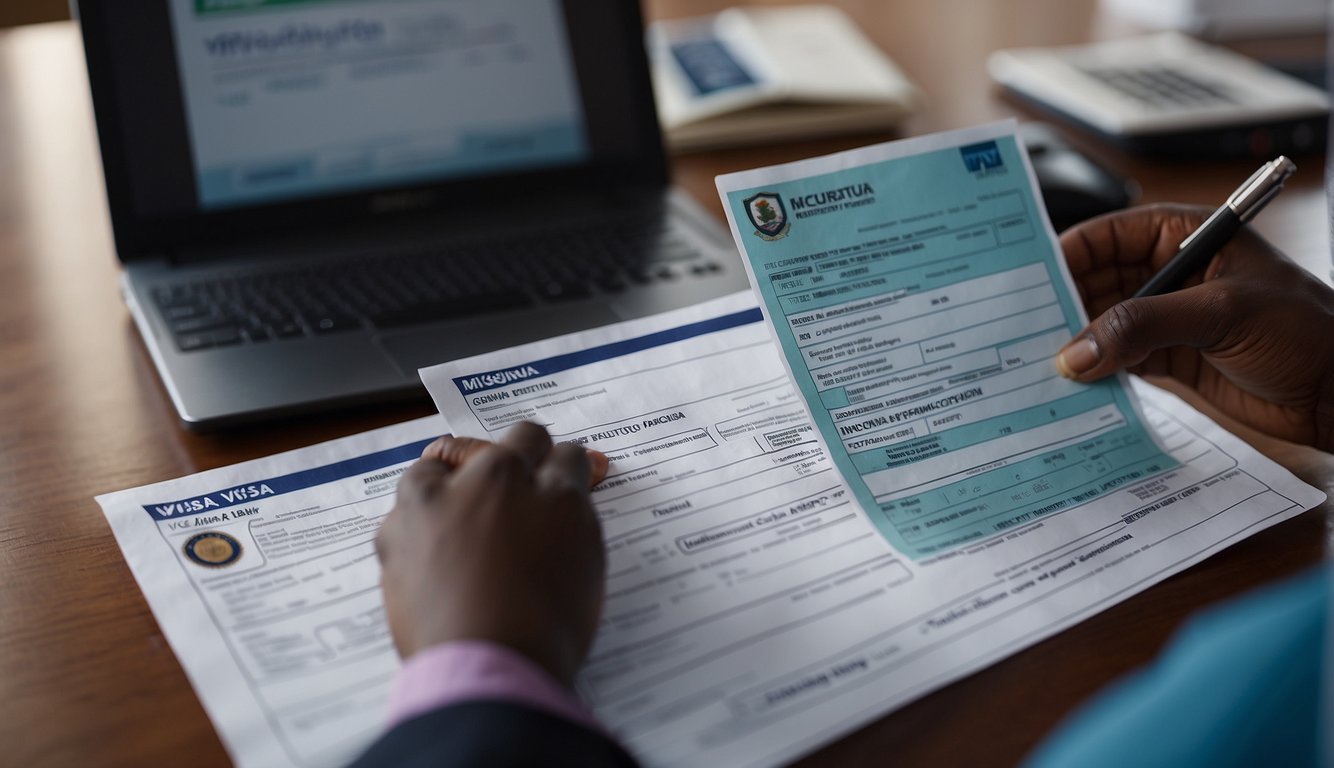
Before making payment for your visa application in Nigeria, it is important to ensure that you have all the required documents ready. This will help to avoid delays and ensure that your application is processed smoothly.
Gathering Required Documents
To apply for a visa, you will need your Nigerian passport, which must be valid for at least six months beyond the date of your intended stay. You will also need to provide other requirements such as a travel itinerary, a letter of invitation (if applicable), and a proof of accommodation.
In addition, you will need to provide a completed online application. This can be done by visiting the official website of the embassy or consulate of the country you intend to visit. You will need to create an application ID and provide biometric data, such as fingerprints and a digital photograph.
Completing the Online Application
To complete the online application, you will need to provide personal information such as your name, date of birth, and contact details. You will also need to provide information about your trip, such as your travel dates, purpose of visit, and intended length of stay.
It is important to ensure that all the information you provide is accurate and up-to-date. Any errors or inconsistencies could lead to delays or even the rejection of your application.
Once you have completed the online application, you will need to print out a copy of the confirmation page. This will include your application ID, which you will need to make payment for your visa application.
By following these steps and ensuring that you have all the required documents, you can prepare your visa application with confidence and ease.
Making the Visa Application Payment
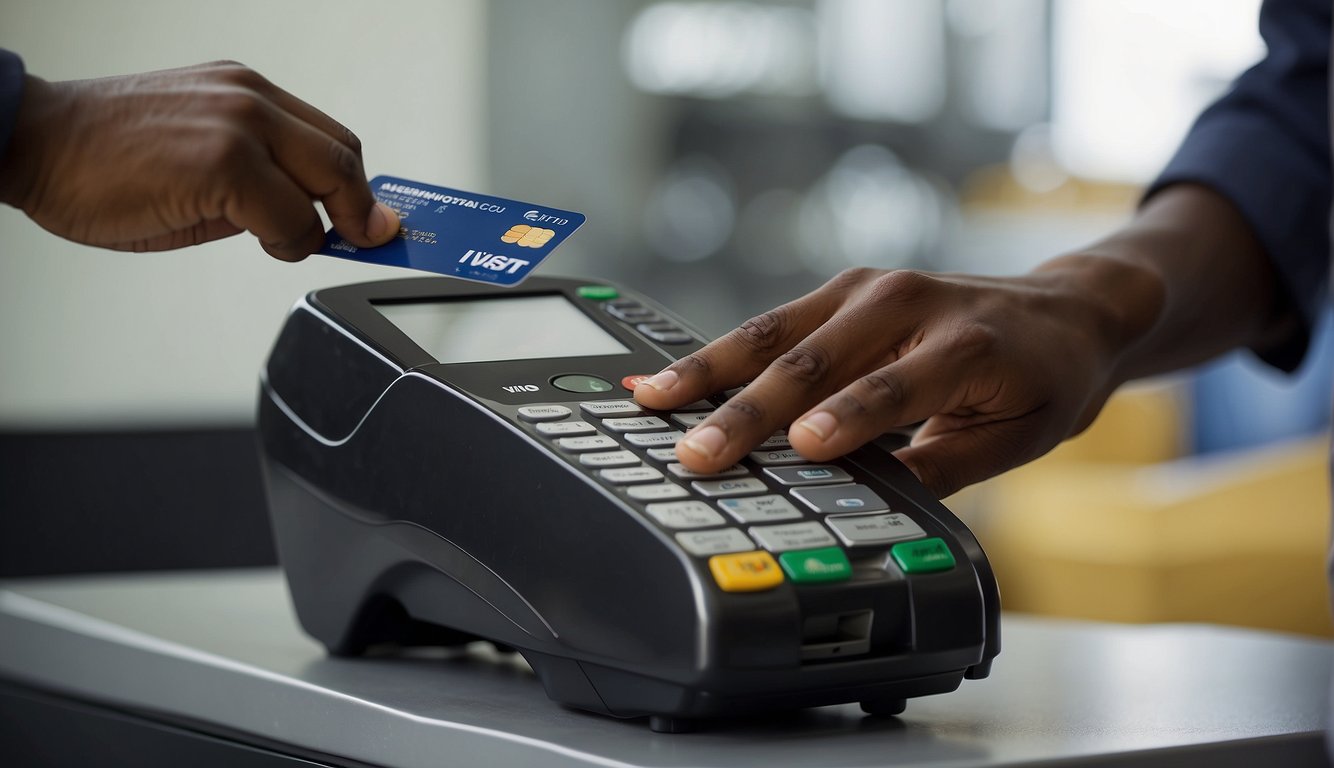
When applying for a visa in Nigeria, payment is an essential step in the process. This section will provide a comprehensive guide to making the visa application payment.
Payment Methods and Processes
There are various payment methods available to applicants, including money orders, online payment, credit cards, and debit cards. It is essential to note that the payment method may vary depending on the visa type and the embassy or consulate where the application is processed.
To make a payment, applicants should follow the payment process outlined by the embassy or consulate. This process may include visiting a designated bank to make the payment or using an online payment platform. It is advisable to confirm the payment process with the embassy or consulate before initiating payment.
Understanding Visa Fees and Charges
Visa fees and charges vary depending on the visa type and the embassy or consulate where the application is processed. Applicants should check the visa fee schedule on the embassy or consulate’s website or contact the embassy or consulate for more information.
In addition to the visa fee, applicants may also be required to pay additional charges, such as a service fee or a courier fee. Applicants should confirm all fees and charges before making payment.
Receipts and Proof of Payment
After making the visa application payment, applicants should obtain a receipt or proof of payment. This receipt or proof of payment may be required when checking the application status or during the visa interview.
Applicants should keep the receipt or proof of payment safe and ensure that it is easily accessible when needed. In some cases, applicants may be required to present the receipt or proof of payment multiple times during the visa application process.
In conclusion, making the visa application payment is an essential step in the visa application process.
Applicants should carefully follow the payment process outlined by the embassy or consulate and ensure that they obtain a receipt or proof of payment.
Scheduling and Attending the Visa Interview

Booking Your Appointment
After completing the visa application process and making payment, the next step is to schedule an appointment for the visa interview. Applicants can schedule their appointments online through the embassy’s website or by calling the embassy’s support line.
It is important to schedule the appointment as soon as possible to avoid any delays in the processing of the visa application.
During the scheduling process, applicants will be required to provide their personal information, passport details, and the purpose of their travel to the embassy. They will also need to pay the visa application fee, which varies depending on the type of visa being applied for.
What to Expect During the Interview
On the day of the interview, applicants should arrive at the embassy at least 15 minutes before their scheduled appointment time. They should bring all the required documents, including their passport, visa application confirmation page, and any supporting documents.
During the interview, the visa officer will ask the applicant a series of questions regarding their travel plans and purpose of visit. It is important to answer these questions truthfully and confidently.
Applicants should also be prepared to provide any additional information or documents that the visa officer may request.
After the interview, the visa officer will inform the applicant whether their visa application has been approved or denied. If approved, the visa will be stamped on the applicant’s passport and they will be able to travel to their destination country.
In summary, scheduling and attending the visa interview is an important step in the visa application process. Applicants should schedule their appointments as soon as possible and arrive at the embassy well-prepared with all the required documents.
By following the guidelines and being confident during the interview, applicants can increase their chances of having their visa application approved.
After the Visa Application
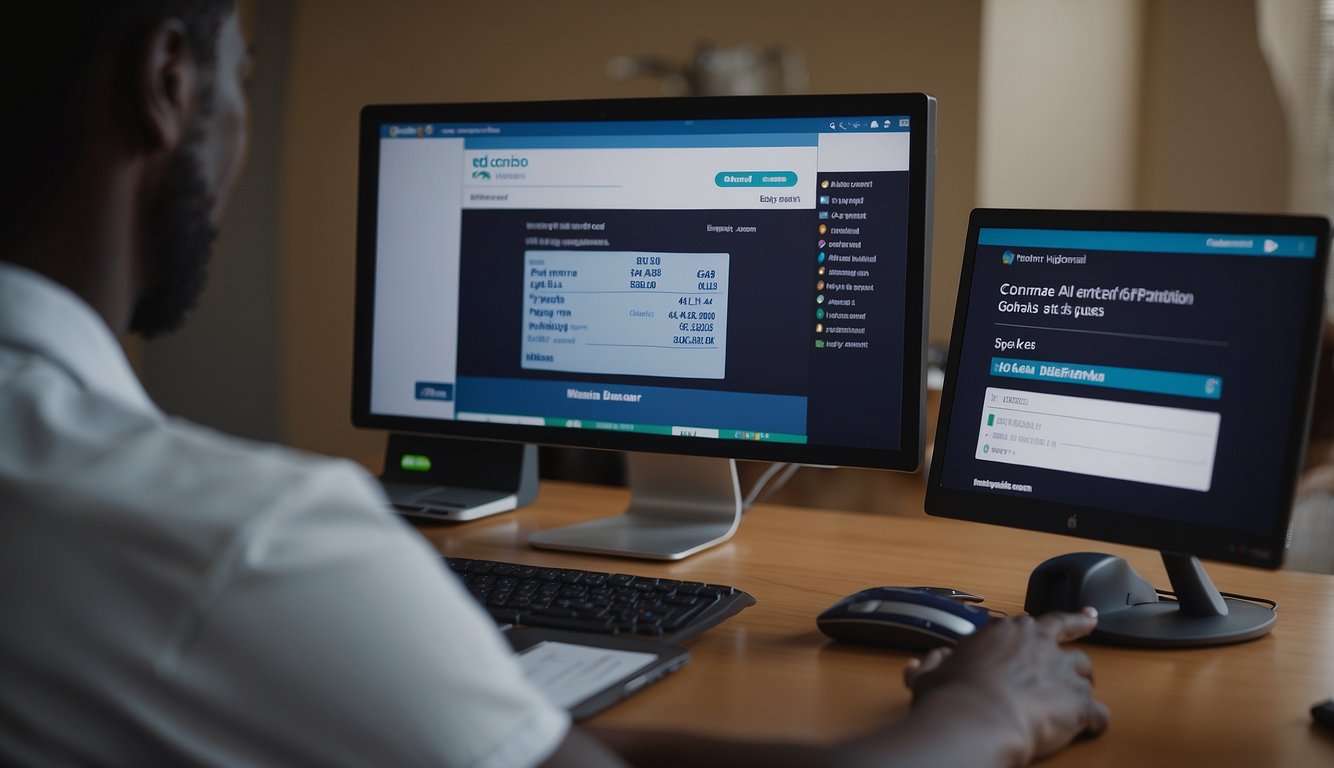
Once the visa application has been submitted, it is important to keep track of its status and understand the refund procedures in case of any issues.
This section will cover the steps to track the application status and how to go about refund procedures if necessary.
Tracking the Application Status
After submitting the visa application, the applicant will receive a tracking number. This tracking number can be used to check the status of the application.
The tracking number can be used on the website of the agency that the application was submitted to. It is important to keep checking the status of the application to ensure that there are no delays or issues.
Understanding Refund Procedures
In the event that the visa application is rejected or cancelled, the applicant may be eligible for a refund. The refund procedures vary depending on the agency that the application was submitted to. It is important to read and understand the refund policy of the agency before submitting the application.
If the application is rejected, the applicant may be eligible for a partial refund. The refund amount will depend on the agency’s policy and the reason for the rejection. If the application is cancelled by the applicant, a refund may not be available or may be subject to a cancellation fee.
In conclusion, it is crucial to keep track of the visa application status and understand the refund procedures in case of any issues. By doing so, the applicant can ensure a smooth and stress-free visa application process.
Additional Resources and Support

Contacting Nigerian Immigration Service
If you have any questions or concerns about your visa application or payment process, you can contact the Nigerian Immigration Service (NIS) directly. They have a customer service hotline that you can call at any time for assistance.
You can also visit their website to find answers to frequently asked questions and access other helpful resources.
Using Innovate1 Services
If you prefer to use a third-party service to help you make your visa payment, Innovate1 Services is a reputable option. They specialize in facilitating visa payments for individuals and businesses in Nigeria. They offer a variety of payment options, including online payments and bank transfers.
Additionally, their customer support team is available to assist you with any questions or issues you may encounter during the payment process.
Whether you choose to contact the NIS directly or use Innovate1 Services, there are plenty of resources and support available to help you successfully make your visa payment.
Don’t hesitate to reach out if you need assistance – the process can be confusing, but with the right help, you can navigate it with ease.
Frequently Asked Questions
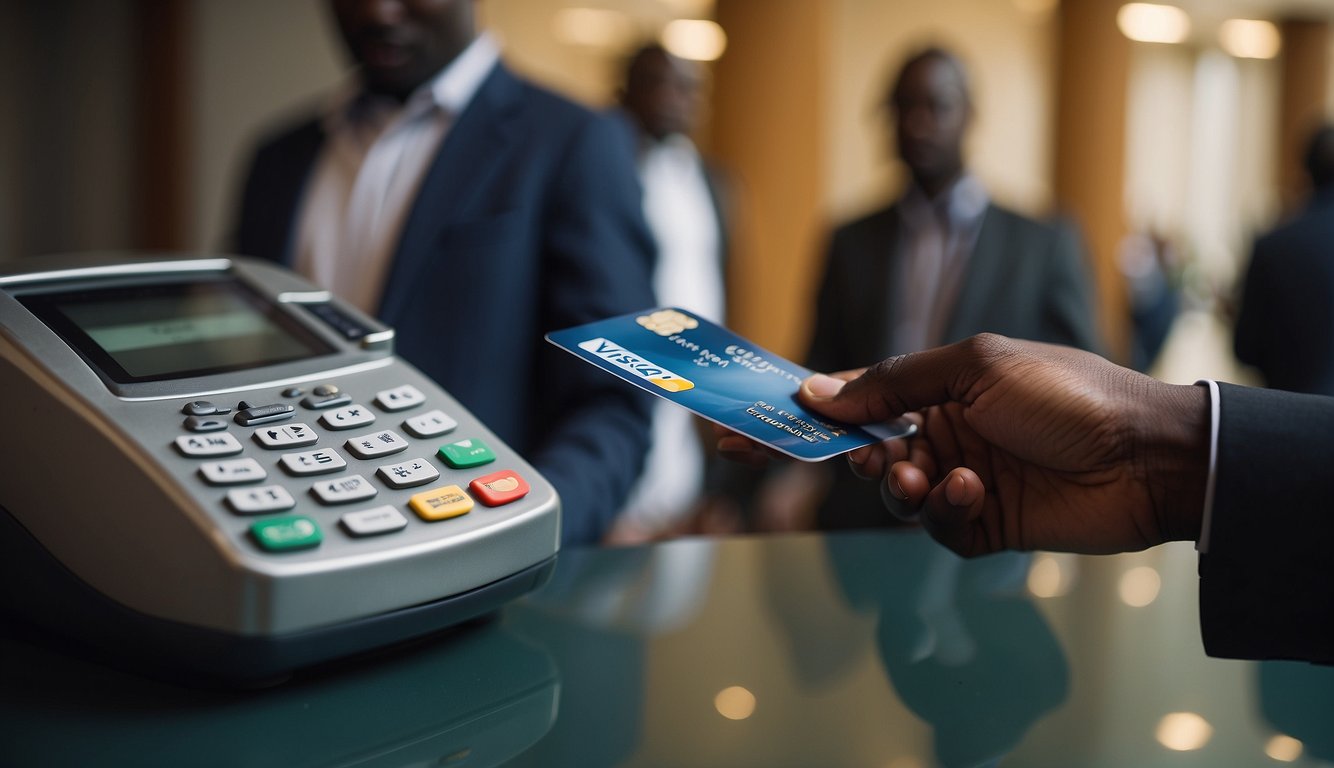
Visa Payment Issues
Visa payment is an essential step in the visa application process. However, applicants may encounter some payment issues. Here are some frequently asked questions about visa payment:
- What payment methods are accepted for visa application in Nigeria?
- Visa application fees can be paid in cash or through electronic payment channels such as debit/credit cards, bank transfers, and online payment platforms.
- Can I pay for my visa application in a foreign currency?
- No, visa application fees must be paid in Nigerian Naira (NGN).
- What happens if my payment is declined?
- If your payment is declined, you may need to contact your bank or payment provider to resolve the issue. Alternatively, you may need to try a different payment method.
Application Troubleshooting
Applicants may encounter some technical issues while applying for a visa online. Here are some frequently asked questions about application troubleshooting:
- What should I do if I encounter an error while filling out my visa application?
- If you encounter an error while filling out your visa application, you may need to start over or contact the Nigerian embassy or consulate for assistance.
- Can I apply for a visa on arrival if I have an official passport?
- Yes, holders of official passports from all countries can apply for a visa on arrival.
- Can I apply for a visa on arrival if I am visiting a free zone in Nigeria?
- Yes, visitors to Nigeria’s free zones can apply for a visa on arrival.
- Can I visit Nigeria with only a travel document?
- No, visitors to Nigeria must have a valid passport and visa (if required) to enter the country.
- Can I apply for a visa on behalf of my parents?
- No, applicants must apply for their own visas. However, parents or legal guardians can assist minors with their visa applications.
- What type of visa should I apply for if I am a tourist?
- Tourists should apply for a visitor’s visa (subclass 600) to visit Nigeria.
Let me know if you have any questions or need further clarification. I would love to assist you.
You can watch my videos on the Studentship YouTube Channel by clicking here.
Join my Facebook Group, Like my Facebook Page or Follow Me on WhatsApp for more interactive discussions.
